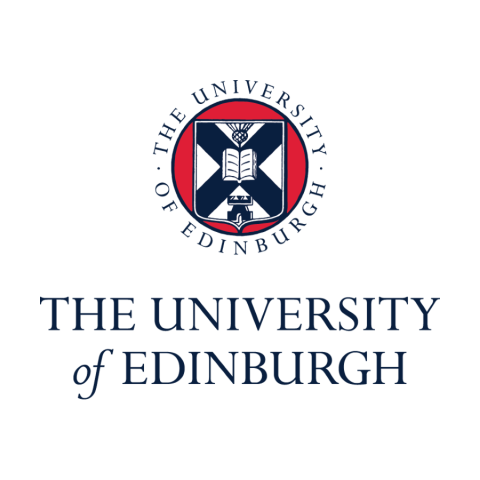
Promoting online courses: five effective marketing strategies
You may also like
The demand for flexible, accessible learning options has never been greater, but as online learning sees continued growth globally, how can institutions stand out in a crowded marketplace? This is a huge challenge we attempt to tackle at the University of Edinburgh, as we offer a massive portfolio of more than 80 online postgraduate degrees and more than 100 massive open online courses (Moocs). In this article, we’ll explore practical marketing tips and strategies to help you navigate the online education space, boost enrolment numbers and ensure your programmes get the visibility they deserve.
Email marketing is key
Master’s: one of the main goals for our online master’s marketing is to get prospects to sign up for our mailing list. They will then receive regular emails containing content such as the benefits of doing an online master’s, how to apply, student features and so on. We compare open rates and link clicks to industry averages and measure how many subscribers we have successfully converted to applicants.
Moocs: reaching prospective and existing learners through email is a cornerstone of our marketing strategy. With a wide range of subject areas in our Mooc portfolio, there is ample opportunity to send updates en masse or segment readers to funnel them towards courses related to their interests and keep them engaged with other relevant learning opportunities or upcoming online learning events.
Invest in paid advertising
Master’s: the bulk of our online master’s marketing budget is spent on our annual university-wide ad campaign. Every online programme contributes a set amount towards the budget, and we work with an external media agency to identify the best channels. We’ve seen great results from the campaigns, and they have helped us hold our own in an increasingly competitive marketplace.
Moocs: most of our Moocs are produced and marketed on a limited budget. Usually, this means most of our marketing efforts tend to fall on the organic side of the spectrum. However, when there is budget, crafting strategically placed ads on Google search and social channels such as LinkedIn, Instagram and YouTube has led to significant improvements in content engagement and enrolment rates when compared with organic-only (non-paid-for) campaigns. The most effective adverts are ones that resonate with the audience, and have memorable visuals and a strong call to action.
- Spotlight collection: the business of online education
- Creating a welcoming and inclusive online learning community
- Well-being pedagogies: activities and practices to improve the student experience online
Feature your student testimonials
Master’s: The authentic student voice provides value to our online master’s marketing activities. Whether it’s students explaining why they chose to study online, advising new students, talking about the benefits and challenges of remote learning, praising how their degree has enhanced their career prospects or filming a desk tour video...people love to hear directly from them! Prospective students also have the option of chatting online with current students through our student ambassador scheme.
Moocs: There’s an overwhelming number of Moocs available online – with options for those looking to learn for fun, and those looking to upgrade their professional skills. Learner testimonials are key to helping those on the fence see where the course can take them, and what they can expect to learn. The days of raving about how good your course is are over. Highlighting the experiences of other learners helps provide social proof, validation and intrigue – a feat that simply can’t be replicated by self-promotion alone.
Generate content for organic social media
Master’s: Content on organic social media channels (meaning non-paid social posts) can increase brand awareness and lead to conversion. Inspiring and insightful interviews from graduating students always gain great engagement. Other than that, we regularly post student-generated vlogs or blogs, tips on studying online, resources for online students and the profiles of our student ambassadors. Our highest-performing Instagram reel is just a simple motivational quote overlaid on top of a seven-second video of Edinburgh Castle.
Moocs: Entertaining and educational content is what your learners want to see on socials. Without fail, videos under 60 seconds have stood out as the consistent winners in our social media reviews. There is a big opportunity here to further develop relationships with your audience and subtly show the benefits of the courses you’re promoting. Giveaways can also be a great option to boost your metrics on socials organically. Earlier this year, one of our giveaway competitions resulted in our increasing our followers by 14 per cent, as well as gaining more learner testimonials in the process. The giveaways were targeted at people with an interest in short online courses, including our own social media followers and those who followed our Mooc partners. Our followers were quite motivated to participate because the prize was free access to a course of their choice.
Engage your audience through events and comms
Master’s: our postgraduate online learning open days is our flagship event that takes place over two days every May. Comprising more than 100 live webinars, attendees can hear from and ask staff and students questions about online learning. Furthermore, we have smaller virtual open days to keep prospects engaged throughout the year.
Moocs: Also included in our open days are sessions focused on our portfolio of short online courses. We find attendees are keen to discover all our online learning options and taking a short online course may persuade them to progress to an online master’s in the future. As mentioned earlier in this article, email newsletters also serve as a reliable method for keeping new and returning learners informed. Lastly, and more rarely, hosting Mooc launch events can be a brilliant way to engage with your prospective learners in person, enabling you to better understand their approaches to learning and gain rapid feedback.
Promoting online learning can and will look slightly different for everyone. Here’s a quick recap of some things to keep in mind when refining your strategy:
- Focus on improving your email communication with your audience
- Experiment with and analyse the results of paid advertising on relevant platforms
- Highlight the student voice and experiences in your content strategy
- Spend more time creating content that your audience wants to see
- Create opportunities to engage and create dialogue with prospective learners.
Luke Howard is a digital engagement officer in the online learning marketing team at the University of Edinburgh. Ari Badlishah is digital engagement officer in the online learning marketing team at the University of Edinburgh.
If you would like advice and insight from academics and university staff delivered direct to your inbox each week, sign up for the Campus newsletter.




